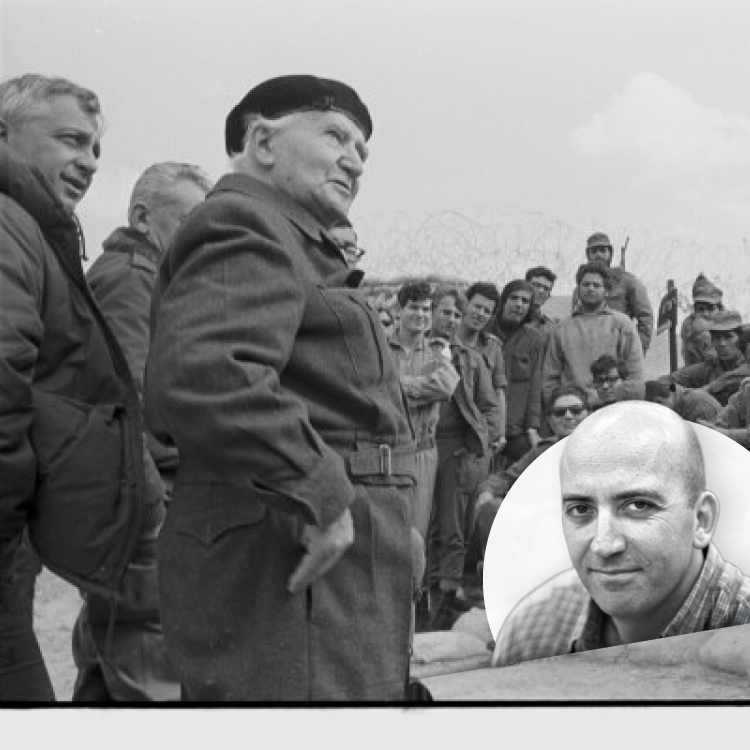Op-ed: At the foundation of the state, Ben-Gurion sought to unify a nation of immigrants, both with education and military service; but Israel isn’t a nascent state anymore, and its military should not be educating, converting, or entertaining its citizenry any more, nor should a mostly secular army have such a powerful religious unit.
At the foundation of the state, the army was a central component in Ben-Gurion’s state-building toolkit. Israel was a country of immigration with a vision for unity (all of us are siblings; all of us have returned home) but with very few common denominators shared amongst immigrants from Yemen and Poland, from Germany and Morocco.
The classic apparatus to transform immigrants into a cohesive community of citizens was education. It was in school that children were supposed to learn—and to create—Israeli heritage: a shared past, shared values, and a shared culture.
Ben-Gurion understood the importance of state education, when, in actuality, this “common” state educational system is not comprehensively shared. It’s but one track, which has weakened with time. The state has authorized the existence of alternative tracks alongside it—Arab, independent, state-religious—in which the students learn to differentiate themselves from the whole and develop sectoral values.

Why did Ben-Gurion permit this anomaly? It’s likely that he allowed it because he was overconfident in the success of his own sector. The secular-Zionist sector, presumed “the old man” (Ben-Gurion’s nickname —ed.), can allow itself to leave its poor relations islands of separatism in a sea of state, since every intelligent person knows whence history leads and who is destined for its trash heap. The non-state tracks, he presumed, would be consumed in the tidal wave of the state. This prediction, of course, proved false.
Alongside the schools stood another tool at his disposal: the army. The IDF is a powerful socialization mechanism that was built from the ground up according to Ben Gurion’s principles of statehood. Young persons were supposed to be drafted and spend two years (women) or three (men) of their lives in a system that would teach them one cultural language and present them with one nationality and authorized national goals. In this case too, Ben-Gurion’s arrogance and confidence in victory led him to permit exceptions, which have only grown.
For clear reasons, the first prime minister waived the draft for Arab citizens of Israel. For less clear reasons, he waived the draft for women from the religious sector and later on for yeshiva students. He also abstained from proposing an orderly system of state national service. Today, the state system in Israel is not the whole, but rather a portion that continues to dwindle amongst other portions.

As part of seeing the army as a central tool in shaping society, it was provided with tools and authority that many other armies in democratic states do not possess. The IDF was involved with settlements, education, entertainment, language teaching, and conversion. It had its own newspapers and its own radio station.
But there’s no more place for all these tools. Israel isn’t a small society in the process of establishment anymore; it’s a medium-sized country with established civilian institutions, more or less. Even if it didn’t achieve its goals of cohesion, looking to the IDF for the solution isn’t possible again.
The army has very defined roles in defending the country’s security according to orders and instructions from the executive. It’s not supposed to settle, educate, convert, or entertain civilians. There’s no reason for the army to have a publication intended for civilians, and there’s no reason for it to have a broadcast station like Army Radio (Galatz), intended principally for civilians and competing in the ratings like any other broadcast station while it’s subject to constant intervention by the defense establishment and its decisions. The current situation—in which an allegedly military communication entity enjoys a staff of cheap employees who can’t transfer to a competitor or demand an improvement in their conditions—is unhealthy and unfair.
And when there’s no logic in Army radio existing, there’s no logic in the existence of the powerful military rabbinate. The IDF needs to provide basic religious services to soldiers who desire them. That doesn’t justify the swollen and ideologically biased body that’s grown here. There is no need for a rabbi general (with questionable ideas about women) and his unit forcing religion on an army composed mostly of secular soldiers. The army’s job is to defend the citizens of Israel. That’s all.
As reported by Ynetnews
